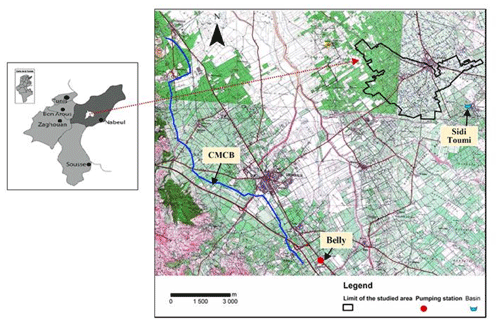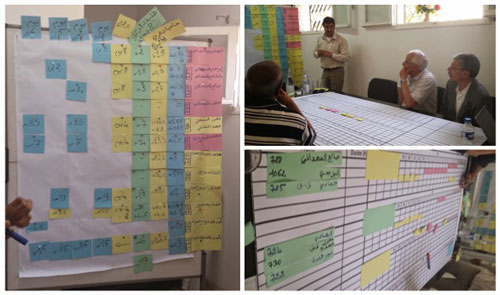Water scarcity conflicts in a community managed irrigation system in Northern Tunisia: Supporting dialogue and negotiation
Conflict over water resources emerges from complex interactions among biophysical, social, and economic processes operating at multiple scales. The concomitant use of surface and groundwater managed for multiple uses is a classic coping strategy to manage the water scarcity yet a relevant example of such conflict. Managing these resources is thus a dynamic decision-making process involving actors with different perceptions of the situation, who adapt different strategies to satisfy their objectives and interests. This paper presents the results of an effort to address these conflicts through reinforcing the adaptive capacity of different actors to cope with water scarcity in a multi-scale irrigation system. The study site focuses on the irrigated area of Zaouiet Jedidi in Northeast Tunisia. This region is characterized by an intensive irrigated agriculture, mostly through an excessive pumping of groundwater resources. Individual strategies to face the water scarcity are dominating leading to a rapid deterioration of the groundwater resources. Irrigation through individual and informal wells is an example of such strategies. As the demand for agricultural and urban water has concurrently continued to develop, the groundwater has continued to drop. Despite the State's efforts to increase the water supply to the region through the transfer of surface water from the dams of northwestern Tunisia, the overexploitation of groundwater resources exceeded 200 %. A participatory process was implemented to initiate a process of interaction and coordination between the different stakeholders involved in the management of the irrigated area. We analyzed to what extent and by what mechanisms, a participatory problem-solving process can facilitate the emergence of collection action to face the water scarcity.








